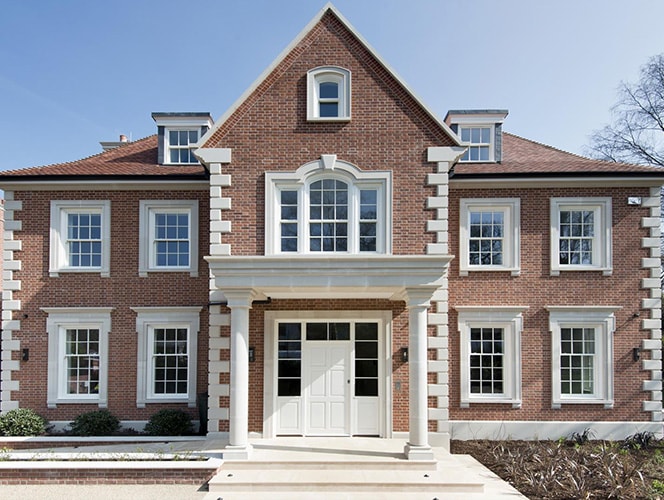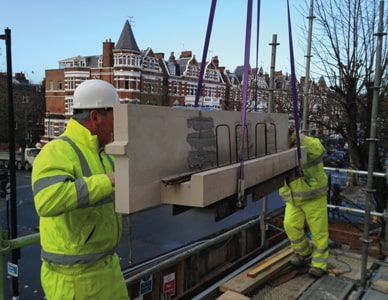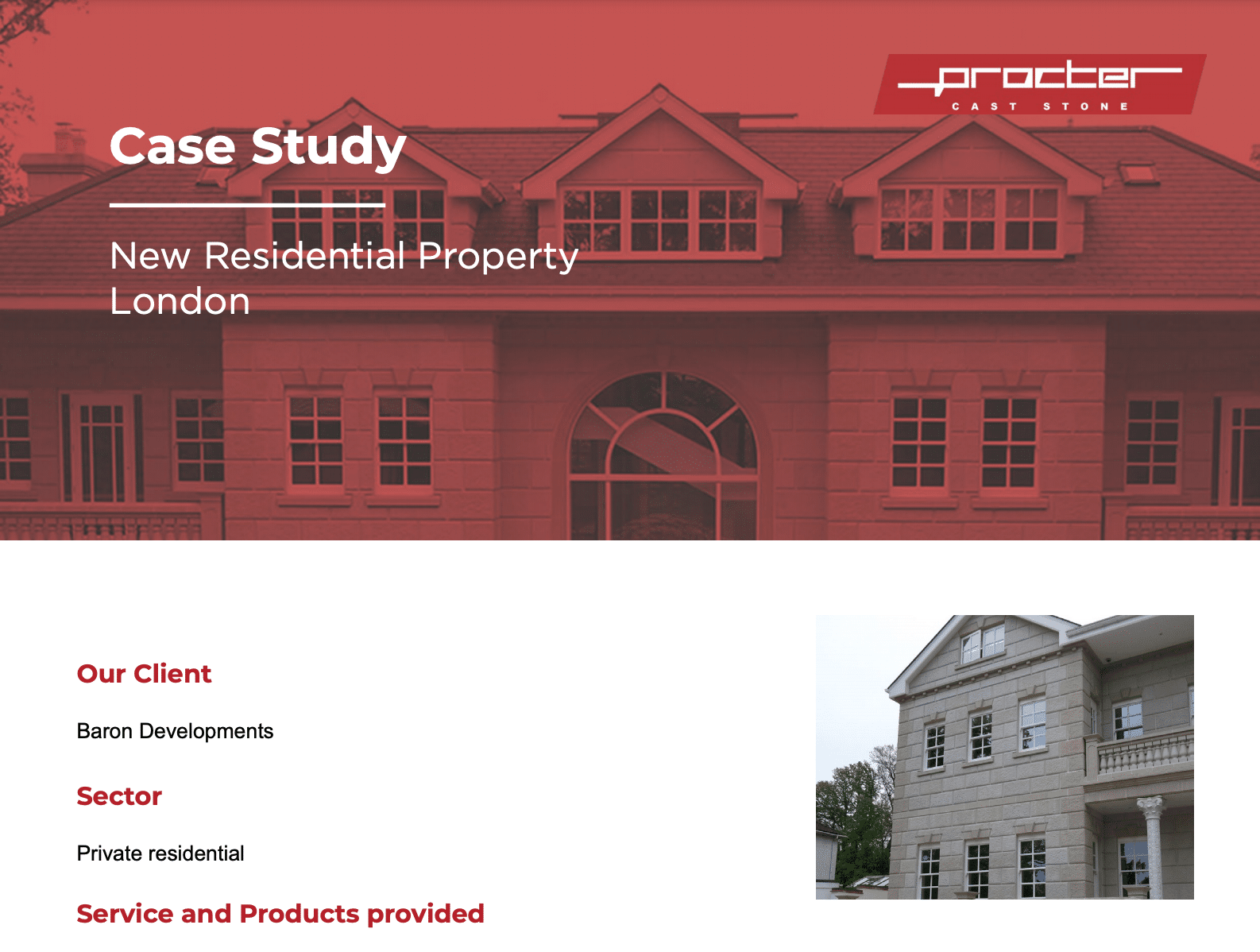Bespoke Cast Stone Units Offer Benefits to Architect
Bespoke cast stone units are a versatile and cost-effective alternative to natural stone. Judicious use of cast stone can transform a property, adding style, character and perceived value. Furthermore, because it is manmade, cast stone offers architects a level of design freedom that is not available from natural stone.
Almost any three-dimensional form can be manufactured, and cast stone is available in a wide variety of shades to mimic natural stone – or custom colours can be produced to order. Architects also have a choice in the surface finish and texture that they specify, safe in the knowledge that cast stone weathers in the same way as natural stone. Moulds for cast stone units are manufactured using architects’ CAD or hand-drawn designs.
Other advantages that cast stone offers over natural stone include the fact that reinforcement can be incorporated within cast stone units, as can lifting eyes or bosses to facilitate mechanised handling on site to comply with health and safety requirements and to minimise the
risk of damage through mishandling. Individual units can be clearly marked to aid rapid on-site identification for correct installation.
Cast stone units are produced in moulds, with one-off units being very cost-effective compared with natural stone. However, if multiple units are required, the tooling cost is amortised over a much larger number of units to reduce the unit price even further. This lower cost means that cast stone becomes affordable on projects for which the cost of natural stone could not be justified.
Cast stone units are produced in a factory environment, with suppliers such as Procter Cast Stone adhering to rigorous quality control procedures to ensure consistently high quality both within batches and from one batch to the next. Production in such an environment means that deliveries to site can be to schedules agreed in advance. Furthermore, should a unit become damaged, an identical replacement can be manufactured more quickly than is likely to be the case for natural stone. These two factors help to de-risk a project and ensure that project timescales do not drift.
There are a number of suppliers of cast stone within the UK, but architects and specifiers need to be aware that not all produce high-quality work. Procter Cast Stone is part of Procter Bros, a family-owned business that was established in 1740. In common with the other divisions within Procter Bros, Procter Cast Stone strives to achieve high product quality and outstanding customer service.
Technical staff provide free consultations to assist in the selection and design of all cast stone features. Early involvement in project planning ensures the successful incorporation of the features to suit aesthetic, performance and budgetary parameters, and deliveries are scheduled to suit site programme requirements.
All Procter Cast Stone products are subject to final inspections, carefully packed, protected and shrink-wrapped on pallets. Deliveries are made using Procter’s own vehicles to ensure they arrive in first-class condition.
For architects and specifiers that have not previously worked with cast stone, Procter Cast Stone offers a free guide, called Understanding Cast Stone, which explains the design considerations, site practice, aftercare and maintenance, as well as providing a list of applicable British Standards and Eurocodes. This can be downloaded free of charge as a PDF from the Downloads section of the Procter Cast Stone website.
For more information about bespoke cast stone products, or request a free copy of Understanding Cast Stone – A Guide to Cast Stone Products for Architects and Specifiers, email info@proctercaststone.co.uk or go to the Downloads section of the website.



